<< Previous | Displaying results 176-200 of 489 for "warsaw" | Next >>
An only child of middle-class Jewish parents, Liliana was raised in a mixed neighborhood of Christians and Jews in Poland's capital. Her father ran a jewelry business and was a reserve officer in the Polish army; her mother was a housewife. Liliana dreamed of going to the Sorbonne and becoming Poland's second female district attorney. 1933-39: The worst part of going to school was being harassed and called a "filthy Jew." Liliana petitioned to enter a prestigious Catholic high school where she was…
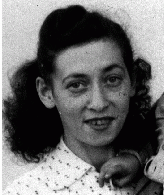
Ben was born to Jewish parents in Warsaw. When Ben was 7, his family moved to Mogielnica, about 40 miles from Warsaw. Ben's father spent much of his time studying religious texts. His wife managed the family liquor store. Ben attended public school during the day and was tutored in religious studies in the evening. 1933-39: After attending school in Warsaw, Ben returned home to help in the family's liquor store. One day, there was a mass demonstration in town. People chanted, "Don't buy from the Jews!"…
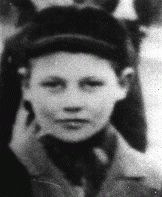
Frimit was one of eight children born to Yiddish-speaking, religious Jewish parents. The Bursztyns lived in the heart of the same Jewish neighborhood in Warsaw where Frimit's father owned and operated a bakery located on Zamenhofa Street. In 1920 the Bursztyns moved to a comfortable, two-bedroom apartment in the same neighborhood at 47 Mila Street. Frimit attended Warsaw public schools. 1933-39: By 1939 six of Frimit's brothers and sisters had already moved out. Only Frimit and her younger brother were…
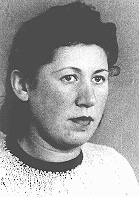
Chil was born to a Jewish family in the industrial city of Łódź. His mother died before World War II, leaving his father to raise the family. Chil worked to help his father support his siblings. 1933-39: On September 1, 1939, Nazi Germany invaded Poland. Chil fled Łódź with his younger sister Rivka to Pruszków, a small town 10 miles southwest of Warsaw. 1940-45: In October 1940, German authorities established an open ghetto in Pruszków. In January 1941, the Germans transported most of the Jews…
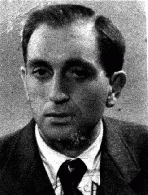
Szlamach was one of six children born to Yiddish-speaking, religious Jewish parents. Szlamach's father was a peddler, and the Radoszynski family lived in a modest apartment in Warsaw's Praga section on the east bank of the Vistula River. After completing his schooling at the age of 16, Szlamach apprenticed to become a furrier. 1933-39: During the 1930s Szlamach owned a fur business. Despite the Depression, he was hoping the economy would turn around so that he could make enough money to move into his own…
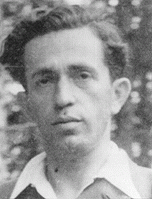
Gisha was raised by Yiddish-speaking, religious Jewish parents in the town of Pultusk in central Poland. She married in the late 1890s and moved with her husband, Shmuel David Bursztyn, to the city of Warsaw, where Shmuel owned and operated a bakery on Zamenhofa Street in the city's Jewish section. In 1920 the Bursztyns and their eight children moved to a two-bedroom apartment at 47 Mila Street. 1933-39: By 1939 six of Gisha's children were grown and had left home: her eldest daughters had married, and…
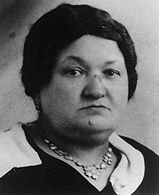
Sylvia's Jewish-born parents had converted to Christianity as young adults, and Sylvia was raised in the Christian tradition. Mr. Winawer was a successful lawyer and the family lived in an apartment in the center of Warsaw. Sylvia's mother collected art. 1933-39: Sylvia attended a private school run by the Lutheran Church, and she loved her school and classmates. When she was 9, her parents brought her the most wonderful "present"--a new sister! Two years later life changed when the Germans invaded Poland…
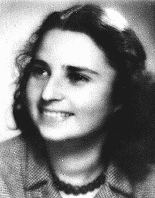
Zofia was raised in a well-to-do, prominent Hasidic Jewish family in Warsaw. Uneasy with the constant tension between the Polish people and the Jewish minority, Zofia joined the communist student club Spartacus when she was a teenager. Spartacus actively campaigned against the growing fascist movement in Europe. 1933-39: When Warsaw surrendered to the Germans on September 28, 1939, Zofia was 14 years old. She stopped going to school. Though the Nazis banned Spartacus, she secretly helped to revive the…
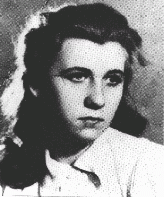
One of the ten metal boxes in which portions of the Ringelblum Oneg Shabbat archives were hidden and buried in the Warsaw ghetto. The boxes are currently in the possession of the Jewish Historical Institute in Warsaw.
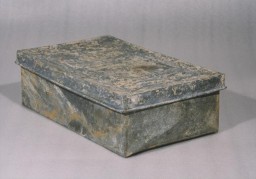
One of the ten metal boxes in which portions of the Oneg Shabbat archive were hidden and buried in the Warsaw ghetto. The boxes are currently in the possession of the Jewish Historical Institute in Warsaw. This view is of an open box without the lid.
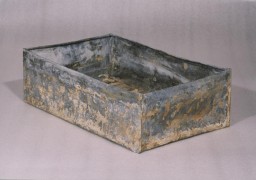
The younger of two children born to Jewish parents, Rachela grew up in Radom, an industrial town located some 60 miles south of Warsaw. One-quarter of the city's 100,000 prewar population was Jewish. Rachela's father was a Zionist and was active in municipal affairs. Her mother did volunteer work. l933-39: Germany invaded Poland on September 1, 1939. On September 5, with the Germans rapidly advancing, Rachela's family sought temporary safety with relatives in Warsaw. They got separated along the way.…
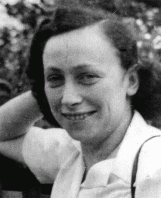
Lila was born to a Jewish family in the largely Jewish city of Stanislawow. The Lam family owned an oil field and refinery, and Lila's father, who was trained as a lawyer, helped to manage the business. When it came time for Lila to begin first grade, her parents decided to have her tutored privately at home rather than have her attend an elementary school. 1933-39: The Jewish holidays were always special times. Although Lila's family wasn't religious, the holidays were wonderful opportunities for her…
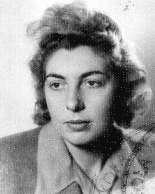
Henia was born to parents living in the small predominantly Jewish town of Kaluszyn, 35 miles east of Warsaw. By the early 1930s, hundreds of Jewish workers were employed in the town, some in small craft shops, as tailors and carpenters, and others in larger enterprises, as prayer-shawl weavers and fur coat makers. When Henia was in her twenties, she and her husband, Welwel, moved to Warsaw. 1933-39: When war broke out three months ago, many Jews left Warsaw in a mass exodus towards the east. They were…
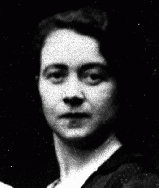
Dorotka was the youngest of three children in a Jewish family. Her father was the director of the Jewish Telegraphic Agency in Warsaw and worked for a popular newspaper. An avid Zionist, he had traveled to Palestine. 1933-39: Dorotka's father established a soup kitchen in Warsaw for Jewish refugees who had fled from Germany. In September 1939 Dorotka was supposed to begin first grade when war broke out. Her father escaped to Vilna with other Jewish leaders. People were suffering, but she didn't understand…
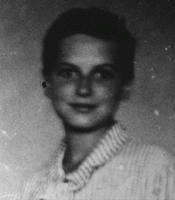
The second of three children, Majlech was born to Jewish parents living 35 miles east of Warsaw in the small, predominantly Jewish town of Kaluszyn. Majlech's father owned a wholesale grocery store, a restaurant and a gas station, all of which were located on the heavily traveled main road. Majlech attended public elementary school and also received religious instruction. 1933-39: Majlech and his pals, Mindele, Sara and Adam loved to discuss politics. They'd heard the Polish propaganda claiming that…
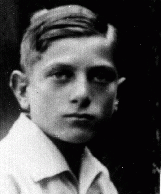
Genya and her brother, Nahum, were raised by Jewish parents in Lodz, Poland's second-largest city and an industrial center. Before the war, one-third of Lodz's inhabitants were Jewish. Genya's parents placed emphasis on their children's education. 1933-39: In 1939, when Genya was 9, the Germans occupied Lodz. After that, it was forbidden for "Jews, Gypsies and dogs" to be in public places. Since Jews weren't allowed to go to school, her parents arranged to tutor her secretly at home, but she couldn't keep…
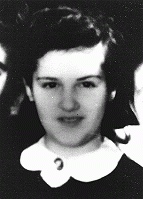
Raised by Yiddish-speaking, religious Jewish parents in the town of Pultusk in central Poland, Shmuel married in the late 1890s and moved with his wife, Gisha, to the city of Warsaw. Shmuel owned and operated a bakery on Zamenhofa Street. In 1920 the Bursztyns and their eight children moved to larger quarters in a two-bedroom apartment at 47 Mila Street in the Jewish section of the city. 1933-39: By 1939 six of Shmuel's children were grown and on their own. Only his youngest son and daughter still lived…
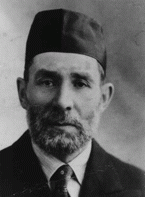
Irena was the second of four children born to religious Roman Catholic parents in Poland's capital of Warsaw. Irena's father owned a successful textile business. When Irena was 10, her family moved to a comfortable apartment near the Royal Castle and the Vistula River. In 1930 Irena entered a private grade school. 1933-39: At 14 Irena began secondary school. She was a good student and wanted to be a doctor. On September 1, 1939, the day she was supposed to begin the new school year, the Germans attacked…
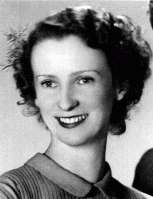
Odon was the third of four children born to Roman Catholic parents in Warsaw, Poland's capital. His father had worked for the Polish merchant marine before starting his own textile business in 1930. When Odon was 8, the family moved to a comfortable apartment located near the Royal Castle and Vistula River. In 1932 Odon began attending grade school. 1933-39: In September 1938 Odon began secondary school. Sensing growing danger from Germany, his father advised him to study German in addition to French. On…
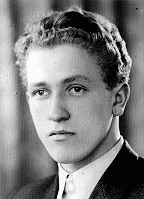
Mieczyslaw was the eldest of three sons born to well-to-do Roman Catholic parents in Poland's capital of Warsaw. His father was a real estate developer and his mother was a housewife. Mieczyslaw, or Mieteck as he was nicknamed, began attending public elementary school in 1930 when he was 7 years old. 1933-39: Mieczyslaw's father urged him to study either German or Russian because he thought it was likely that there would be a German or Soviet invasion. Germany invaded Poland on September 1, 1939. During…
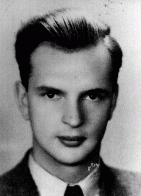
Notebook of Josef Fiszman, a refugee writer from Warsaw. He sold articles to Jewish newspapers in Shanghai and Harbin but still needed help to live from the American Jewish Joint Distribution Committee. Writing in Yiddish, Fiszman rotated the notebook in order to write from right to left (the words "Note book" thus appear to be upside down in this image). [From the USHMM special exhibition Flight and Rescue.]
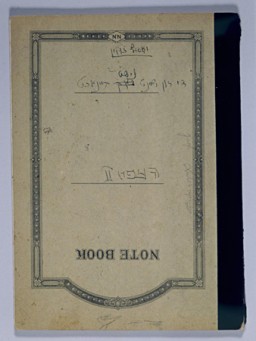
Yiddish writings of Josef Fiszman, a refugee writer from Warsaw. These are some Inside pages of a Fiszman's journal. The journal was written in Shanghai and is entitled "The Sun Never Shines At Night." [From the USHMM special exhibition Flight and Rescue.]
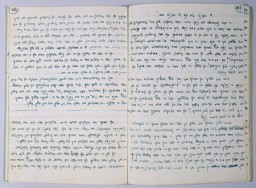
Pants worn by Marjan Glass as he dug anti-tank ditches for the defense of Warsaw, Poland, and then as he hastily fled the city ahead of the German advance on September 7, 1939. Glass, a lawyer, escaped with his wife and three-year-old son, and his wife's mother and brother. He left without taking the time to change from his soiled work clothing. [From the USHMM special exhibition Flight and Rescue.]
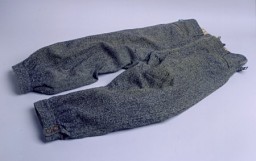
Three Jewish partisans in the Wyszkow Forest near Warsaw. Poland, between 1943–44.
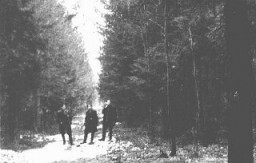
We would like to thank Crown Family Philanthropies, Abe and Ida Cooper Foundation, the Claims Conference, EVZ, and BMF for supporting the ongoing work to create content and resources for the Holocaust Encyclopedia. View the list of donor acknowledgement.